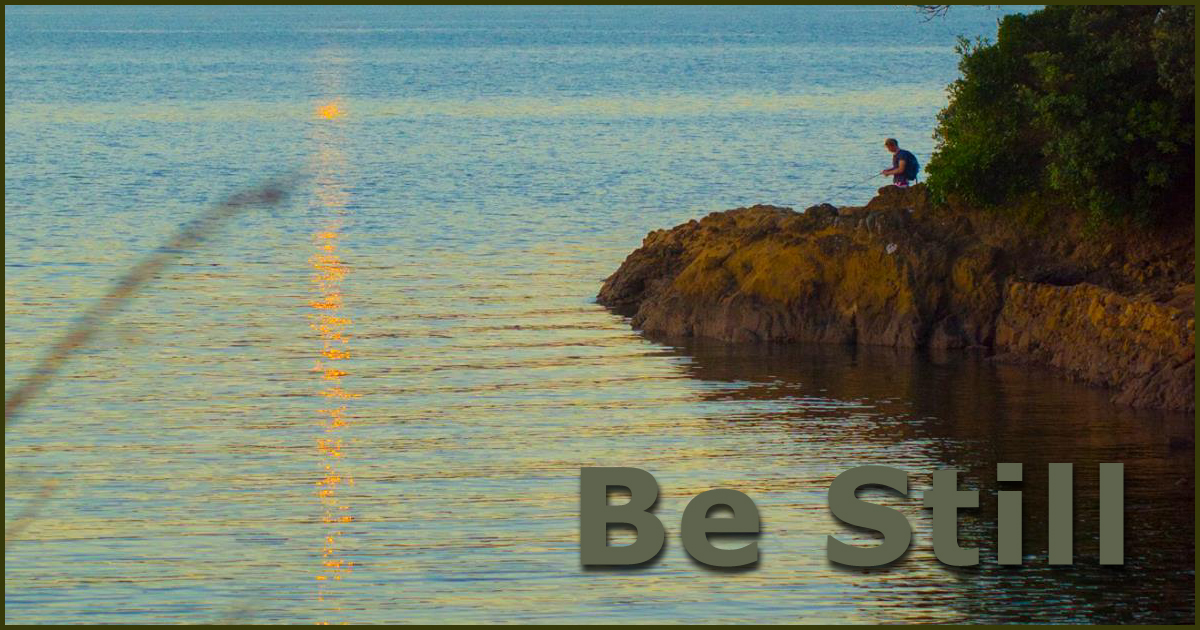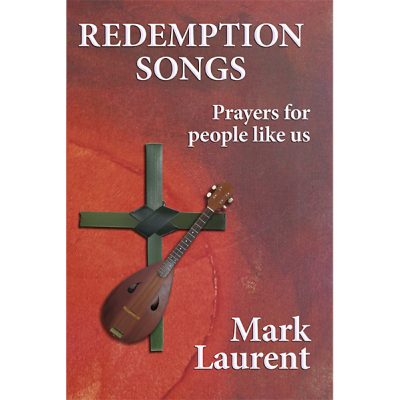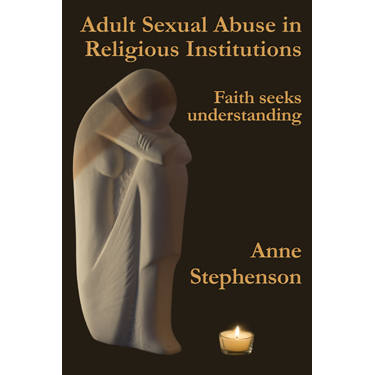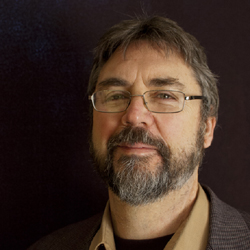“He turned ‘Thou shalt not…’ into, ‘Do this in remembrance of me.’ ” From the sermon: The Tipping Point
(Photo by Alexander Garside–Garside Imaging)

(Photo by Alexander Garside–Garside Imaging)
With Palm/Passion Sunday coming up, here’s a YouTube video I made some years ago of how to make a flax cross.

(Photo by Alexander Garside–Garside Imaging)

(Photo by Alexander Garside–Garside Imaging)

Mark is a Christian musician, poet, writer and communicator, and over more than 30 years, he has recorded many albums and published three poetry books and a children’s storybook. With his wife, Brenda Liddiard, he has done many tours of house- and church-based music concerts, in New Zealand and overseas.
Mark and Brenda live in a high-rise apartment in central Auckland, close enough for Mark to do busking on Queen Street. As he writes: “It’s good to keep in touch with life where it happens – with people where they are.”
This collection contains seventy-one poems inspired by the Hebrew Psalms, which provide ‘good jump-off points’ for the poems that express Mark’s ‘love, hopes and fears to God’.
As the poet writes in his introduction, “The songs are numbered instead of having titles, in the hope that this leaves a degree of open-endedness, so that God can say to you what you need to hear. Dip into them at random. May there be a few holy surprises here for you.”
The language is everyday and unpolished, with imagery drawn from the poet’s life experiences:
God holds us, just as I hold this stone
sees our hardness and our beauty
feels our weight and rough edges
knows our history and potential
we’re all miracles, waiting to happen
we should feel loved.
There is a strong confessional and salvation note in the poems, reflecting similar emphases found in the Psalms and the parables of Jesus:
I’m like a child coming home from school
tasting my mum’s home made baking
life seems a bit like Heaven –
now and then.
As reflecting the lows and highs on life’s journey, the feelings embrace both anger and frustration, compassion and hope:
When I look around me
it’s dog eat dog out there
and if you’re vulnerable or broken
they stare like you’re some kind of freak.
There will never be too many God songs
let’s keep on singing about the good stuff
get out the guitar – warm up your voices
it’s time to compose another one
the best and loudest anthem yet!
There are prayers for the individual and prayers for community, and we need both. Redemption Songs complements well Mark Gibson’s The In-Between Land: Psalms Poems and Haiku (2015). While Gibson’s prayers/reflections find a place for collective worship in civic and church venues, Laurent’s poems offer resources for those working in pastoral and counselling roles with individuals and small groups in such places as hospitals and rest homes, prisons and shelter homes. They are also good for personal devotions.
These two collections of poetry are published by Philip Garside Publishing, which is to be commended for making it possible for Christian poets in Aotearoa to be widely read.
Those wanting more information, including how to arrange a local concert from Mark and Brenda, can email him at mark@marklaurent.co.nz ”

“In this book’s opening pages the author states clearly her intent in writing this resource, which is nothing less than naming what she calls the elephant in the room no one wants to name, and especially no one within religious institutions.
The naming of this ongoing reality is exactly what this author does. She claims quite rightly that no religious institution is devoid of the need to deal justly and compassionately with both ‘victim’ and ‘abuser’ when incidences of adult sexual abuse are brought to light and faced up to.
I deliberately choose to juxtapose these two words – ‘justly’ and ‘compassionately’ – as this is the approach the author takes in this valuable resource written out of personal experience.
The subtitle of the book – Faith Seeks Understanding – captures accurately what this book sets out to accomplish and I believe achieves in a most succinct, readable, and informative manner. As such, this book will be a valuable resource for all manner of people both inside and outside of religious institutions.
The author conveys well the complex issues that frame instances of sexual abuse. She helpfully identifies some of the key warning indicators along with some of the key psychological frames of reference that we need to understand to grasp the full extent of adult sexual abuse and particularly how and why it occurs within the context of religious institutions.
It is fair to say that all religious institutions have needed an urgent wake-up call to become aware of the realities of adult sexual abuse by its spiritual leaders. This crisis and the way it has been addressed have proven to be very impetuous.
In many cases there is a need to both address and establish far more robust procedures that work towards ensuring the pastoral and ethical accountability of those in key positions of trust and influence.
The language used by the author of ‘offender’ and ‘victim’ are rightfully used throughout the book to clearly identify and then address what is at heart an abuse of power which breaches the all-important ethical principle of ‘fiduciary duty’.
As the author establishes, within religious institutions this amounts to breaking the sacred trust between the leader (the one with power) and the congregant who has deemed the leader to be trustworthy.
Because of this sacred trust the consequences are life- changing and the healing required is immense and of a specialised nature both for the victim and offender. The author conveys well the full extent of both the abuse and the healing journey required.
I commend this book as a valuable pastoral resource. It is vital for all involved in any pastoral ministry.”

By Rubinstine Manukia 2016, Philip Garside Publishing, 98 pages
“Sione Tavo Manukia was a grandson of Arthur Frances Tindall, a missionary and trader to Tonga. Sione migrated to New Zealand in the 1970s. He was a man full of hopes and dreams with humble faith and a deep conviction about his purpose in life.
After he landed on the shore of Aotearoa, his balanced life grew immensely and started to unfold in new ways as he was nurtured by his parents.
His parents Sione senior and Sela Soakai Manukia were staunch Methodists and a local business couple. Sione Sr was a lay preacher and a steward for many years.
Sione’s inner most character was expressed through his ordinary life in extraordinary ways. He lived out his faith practically which explains why so many people, including those who have written in this book, pay tribute to him.
He was a man of tenacious courage coupled with an enduring faith and a sincere compassion.
Sione’s strong characters have helped him and his family along with many other families. Through his tremendous efforts over the years they have realised their hopes and turned their dreams in to reality.
Throughout the years Sione faced many challenges but this book, written by his daughter, shows how a person can sustain him or herself through the pressures of life and still reach out to assist others so that they can reach their goals and reach their dreams.
The three main elements mentioned above – courage, faith and compassion – are the three strands that weave together as a strong cord that strengthened Sione over the years.
This solid cord stems out of his great family heritage from both his paternal and maternal family.
His entrepreneurial sense of life came from his grandfather for whom he was a trader in Tonga and around the South Pacific during the early 1900s.
Sione’s steadfast faith was nurtured by his parents, and they encourage him to participate in the life of the church early on. This is where he deepened his faith and displayed it by hard work in dedicating his time and effort to honour God, support his country, and care for his family.
Sione Tavo Manukia is a compassionate father, committed preacher, successful entrepreneur, effective community worker and faithful man of God.”

“This book is written in response to a deficit within religious institutions where processes to address sexual abuse by pastoral leaders are being inadequately addressed. Based in Christian tradition and drawing on personal experience, Stephenson reveals often hidden dynamics involving sexual abuse by pastoral leaders. She reflects on the current situation, provides information about the psychology of offenders and the effects of abuse on the victim. She gives instructions for Church leaders and community workers on how to support victims while taking responsibility for the criminal acts of offenders. There is practical advice and a structure about how to proceed with complaints.
I like Stephenson’s courage and her resolve to put responsibility for addressing sexual abuse by clergy, firmly into the hands of those in power. She outlines what is needed and how it should be done. Church leaders are challenged to be alert and not allow offenders to keep offending. The offender “cannot be healed with grace, forgiveness, reconciliation”, but must engage with the Criminal Justice system. She is a strong advocate for victims and states how important it is that we get it right for all concerned.
As well as noticing some editing issues I found myself looking for references to other current writers on sexual abuse and trauma, perhaps from a secular perspective. I think this may give more credibility to her general assertions that this is the way it is.
While some victims may view this as a useful text that validates their experience, I think others may find the prescriptive nature of the writing – the do’s and don’ts – difficult to relate to. I think it is important also to acknowledge that the person’s process itself leads the way. Even though there are certain themes that can be recognised, each person’s response to trauma is different.
Stephenson’s instructions to pastoral workers are clear. However I wanted to hear more about some of the complexities of disclosure within community settings. Instructions such as: “Do not pay attention to what erupts”, needed more explanation.
I agree with the author that this book would be most useful for Church leaders, those in positions of power, clergy and pastoral workers. It may also benefit counsellors who are working with victims of sexual abuse as it gives insight into Christian communities and what they may be struggling with.”
Kay Ryan is a psychotherapist in Auckland.
This review is online at: https://hail.to/tui-motu-interislands-magazine/publication/KrJM98L/article/FaqM3YN

I’ve just posted these thoughts on https://kiwiconnexion.nz where stimulating discussions are going on about the nature and future of books.
In the beginning was the story and the storyteller told her stories to a few other people at a time. Then the listeners shared the the story as they remembered it to a few other people.
The best stories moved people and became a part of their culture, and who they were, and were treasured because they were true. And the storytellers told the stories to their grandchildren and the stories lived on.
Then the stories were written down – on clay tablets, on parchment, on smooth tanned animal hides. And the stories were now separate from the storyteller and could be spread to the next village and the next town without the storyteller traveling there. And the stories were copied and read and told and grew.
And wisdom could now be retained and passed to the next generations and the community prospered.
And the stories became books and the books were copied and each new copy changed the story – by accident or on purpose – and the stories grew and grew.
But writing the stories by hand was a pain and took a long time. So better ways were invented and lots of copies of the book could now be printed at one time. And everyone could now read the stories about God and important things. And new ideas were shared and evolved and soon no one person could hold in their head everything there was to know in the world. And the stories grew. And the books huddled together in libraries for warmth on the cold nights.
And the people enjoyed having lots of books in one place and read as many as they could, and the stories grew.
—————-
As a publisher, I’m part of this long tradition and evolution. My job is to enable authors to share their stories with people who want to read them. Books are the conduit that take ideas from one person’s mind to another person’s.
I take an author’s words, and create a product to share and sell. About 16 years ago I learned how to create print books, and sent PDFs to the printers. Three years ago I taught myself how to create eBooks in ePub and Kindle formats, and discovered short run print-on-demand processes that make producing print books economic.
A couple of the online articles that have been shared here in the last day or so decry the commercialism of eBooks and predict that ePub and Kindle are going to die soon. Naw, don’t think so.
Whether you like or loath Amazon.com and all the other big online eBook marketplaces like Kobo and Apple, the rise of this technology has made it possible for authors who would previously have submitted manuscripts to publishers, to actually self-publish and market their own books. Some are just earning pocket money on the side, others are making a decent living as writers and a few have made $millions. Dominic Crossan has described Jesus as a “paradigm shift in Jewish apocalyptic eschatology.” EBook production and online selling comes pretty comes to this as a game changer in my view.
If you have now, or can learn, the skills to self-publish, then you as a writer now have the power to share your stories with the whole world. I recommend that writers visit Joanna Penn’s website http://www.thecreativepenn.com/ and especially listen to the podcast interviews she does with all sorts of people in book world, to keep up-to-date with the best and latest ideas.
I have found a niche providing a service to authors who have stories to tell and information to share, but want someone else to package their content into a book, make it available on a bunch of sales channels and help them to sell it. From one manuscript I create several products. For example, Anne Stephenson’s new book Adult Sexual Abuse in Religious Institutions (https://pgpl.co.nz/?page_id=55280) is now available as an ePub, Kindle or PDF eBook, and as a print-on-demand book from CreateSpace and Amazon.com. The NZ print edition is being produced now and will be available in two weeks. So that’s 5 products from one book. Another fairly easy option would be to record the text as an audiobook (to sell as a zipped collection of mp3 files), which opens up some more markets.
David, you are wanting to take this further by creating multimedia online books which combine text, images, sound, video, links…, and pose the question, what is a book?
I have skills to offer on producing and selling some specific formats of books. You have video creation and Mahara platform skills. My children have skills in musical performance, illustration, photography, film making, video and sound recording and editing – that make me proud and warm my heart. Their creativity inspires me to keep going in my little niche, and to ponder the next publishing developments.
I think that a book is any medium or product or artifact that enables people to share stories and ideas. And in the end that’s where the value lies. You can’t beat reading a novel and getting wrapped up in the characters’ world or reading a theology book and having a new idea hit and discomfort you like a Wellington wind gust. The format isn’t important.
Cheers, Philip
Email me your feedback to: books@pgpl.co.nz